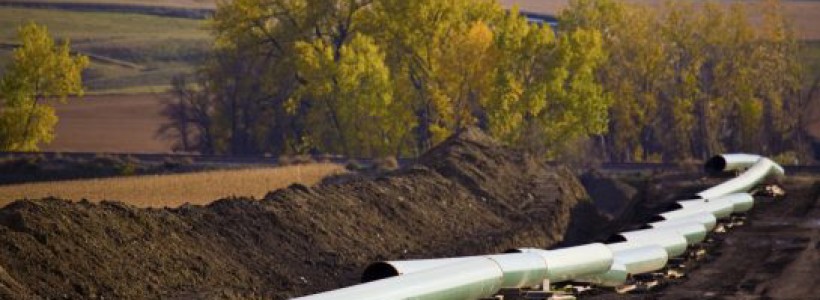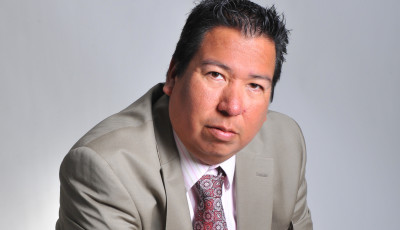Op-Ed: Stephen Harper’s Pipe Dreams for Canada and his Indian Problem.
“The pattern of unilateral application of business practices and of laws and regulations in our territories is a practice that has to stop” National Chief Shawn Atleo, Calgary Alberta Chamber of Commerce, March 1, 2012.
PIPE DREAMS
Canada is at an interesting point in time at the moment; I wouldn’t say it’s at a crossroads but interesting nonetheless – currently there is an estimated 825,000 KM’s of transmission and distribution pipelines across this nation (105,000 of these lines are large diameter transmission lines and only 71,000 are federally regulated). Canada relies on this pipeline infrastructure for many reasons: from crude oil, natural gas and other petroleum products to many local and international markets around the world. Over 3-million barrels are transported through these pipes each and every day.
Canada, much like the United States, is dependent upon oil, and whether foreign or domestic, we need it. Not only does oil allow us to drive across this vast country visiting families, traveling to pow wows and round dances and wherever else we decide to go, it is also used to develop many of the luxuries, conveniences, and necessities of life that we use every day. Everything from our plastic water bottles and dish soaps to the petrochemicals used in our canned goods to keep food fresh longer, are just some of the items created from a barrel of oil.
What does this all mean? Any leader of Canada would be compelled to consider all options when we as a nation surround ourselves with petroleum products.
Indeed, Prime Minister Stephen Harper (Conservatives), Leader of the Opposition Thomas Mulcair (New Democratic Party), and Third Party Leader Justin Trudeau (Liberals) have all stated their support for pipelines across Canada in one form or another. Even Thomas Mulcair supports pipelines; while not the Keystone XL itself, the federal NDP does support a West-East cross-Canada pipeline.
Elizabeth May and the Greens seem to be the only party that opposes pipelines – but their chances of being elected to ruling government remain quite small. Despite having run 304 out of a possible 308 candidates in the 201 election the Green Party received less than 4% of the popular vote federally, electing only Elizabeth May as the only MP.
Regardless of whether or not the oil is going to be used domestically or shipped to international markets, one thing is sure, it is coming out of the ground.
Harper seems to have made it his focus and goal to make resource extraction the aim of his government and in doing so, has had to deal with the Aboriginal peoples of Canada. But Harper has the cunning of the white man on his side and has used it quite effectively against Aboriginal people.
As a pragmatic leader Harper is used to taking incremental approaches to issues and problems.
For example, his five priorities during the 2006 election were hardly earth shattering changes: a quick 2% reduction in the federal GST; introducing Accountability legislation; promising to crackdown on crime; work on reducing health care wait times; and, rather than a national daycare program like the liberals were promising, a simple cash handout so families could choose their own child care providers.
These promises were vastly different from previous Conservative predecessors such as Brian Mulroney, who played with the idea of massive changes such as changing the hidden Manufacturers’ Sales Tax (MST) to a Goods and Services Tax (GST), Free Trade with the United States, and attempts at sweeping constitutional change with the Meech Lake and the Charlottetown Accords, which both failed.
From the days of Prime Minister Richard Bedford Bennett’s New Deal with Canadians to Prime Minister John Diefenbaker’s “Northern Vision” that didn’t have many details, Conservatives have never been afraid of introducing big ideas to change the image of Canada.
To this end, Harper is no different.
Harper’s Indian Problem
Armed with the knowledge that pipelines are the means to get Canada’s oil reserves and resources to market, Harper began planning, but he knew he would have to deal with the traditional territories of the Ojibway, Cree, Anishinaabe, Algonquin and many other Aboriginal peoples. This was the start of his thinking for a new relationship with Canada’s Aboriginal people. Harper knew it would be difficult to implement if he hurried it along like the assimilation papers of Pierre Trudeau’s White Paper of 1969, or Brian Mulroney’s Buffalo Jump Paper of the 1980’s. Instead Harper would lay out a framework that would be doled out over a decade to lull the indigenous people into complacency and acceptance of this new relationship.
In order to accomplish this, the biggest issue Harper knew of seemed to be the Indian Residential Schools, A Common Experience payout of $10,000 for the first year of having to attend an Indian residential school followed by $3,000 for each additional year.
Ultimately, over $5-billion would be spent settling these claims but no amount of money is able to heal the sexual trauma, abuse and destruction of family units.
Payout, Apologize, Legislate, and Terminate
Then Stephen Harper stood up in parliament and apologized to the Aboriginal peoples of Canada for Residential Schools stating, “Two primary objectives of the residential schools system were to remove and isolate children from the influence of their homes, families, traditions and cultures, and to assimilate them into the dominant culture. These objectives were based on the assumption aboriginal cultures and spiritual beliefs were inferior and unequal.”
Harper would go on to state that this would be the start of a new relationship between Canada and the Aboriginal Peoples of Canada. He meant that in every sense of the phrase.
Harper’s plan in hindsight (and many will say they saw this from the beginning), was to “Payout, Apologize, Legislate, and Terminate” the Treaty Relationship that Aboriginals hold as sacred. Harper understood that as long as we were able to hold on to treaty we could dictate what could and couldn’t happen on our lands.
With that kind of power Harper knew pipelines would be a waste of time and effort in many territories. Thus he and his team began draft legislation that would lead to the termination of treaty rights and would also allow Aboriginals and First Nation bands to ‘opt-in’ to these agreements.
The new relationship he spoke of in the apology was not to be the expected Treaty Relationship First Nations people wanted but rather Harper continued to state the ambition to, “reset the relationship between government and the aboriginal community in Canada, moving forward with a vision to fully include their communities in the country’s economy” (The National Post, 12/1/24).
It wasn’t the sovereignty discussion expectation First Nations were now looking at, rather Harper plans included moving us forward by folding us into the Canadian economy.
Termination Plan
This termination platform of his plan came into being on September 4th, 2012, with the various bills included:
Bill C-27: First Nations Financial Transparency Act (Received Royal Assent and is now Law)
Bill C-45: Jobs and Growth Act, 2012 – Part of the Omnibus Bill which included Indian Act amendments regarding voting on-reserve lands surrenders/designations. (Received Royal Assent and is now Law)
Bill S-2: Family Homes on Reserve and Matrimonial Interests or Rights Act (Received Royal Assent and is now Law)
Bill S-6 First Nations Election Act (Received Royal Assent and is now Law)
Bill S-8: Safe Drinking Water for First Nations (Received Royal Assent and is now Law)
Bill C-428: Indian Amendment and Replacement Act (Private Conservative MP’s Bill, supported by Harper government) (Reinstated)
The Senate Public Bills:
Bill S-207: an Act to amend the Interpretation Act (non derogation of aboriginal and treaty rights) (Dead June 4, 2013)
Bill S-212: First Nations Self-Government Recognition Bill (Dead March 26, 2013)
These Bills were designed to assimilate First Nations into existing orders of Canadian governments and terminate constitutionally protected Inherent, Aboriginal and Treaty rights. Harper’s game of hardball forces the negotiation tables of Modern Treaties and Self-Government Agreements to agree to the terms of Canada’s Comprehensive Claims and Self-Government policies.
If they refuse to – the federal government leaves the negotiation process taking funding with them.
Many Aboriginal organizations have already gone through massive funding cuts. The Federation of Saskatchewan Indian Nations funding was cut by $2 million, along with many other Aboriginal and Metis organizations who saw reduced funding.
The federal government said the changes would help make First Nations communities healthier and more self-sufficient. These funding cuts greatly affected things such as social housing on reserve, educational funding, and advisory services for First Nations, and as a result, have left many First Nations outraged and disgusted with the federal government.
But what made these Bills stand out is how they were introduced in the House of Commons.
Rather than a complete overhaul, or imposition of a termination plan, Harper again used his Modus Operandi of the incremental approach to systematically introduce the needed changes, even burying them in his now famous ‘Omnibus’ Bills.
Also getting bands to sign on to agreements came in the form of “requiring First Nations to agree with all existing legislation and government publication as well as any amendments or changes that might be made to them in the future”, in order to receive yearly funding, making many bands feel bullied into signing the transfer agreements ‘under duress’.
It will be interesting to see what future governments do with these pieces of legislation, now signed by First Nations bands.
Trudeau has talked about revoking the First Nations Transparency Act, but what about the other Acts? What’s a First Nation community to do about all this?
Tsilhqot’in Nation Landmark Case
Many First Nation communities and Aboriginals were ecstatic over this ruling of the Supreme Court of Canada, calling it a game changer for all – a victory granting Tsilhqot’in Nation title to 1,700 square kilometers of land that had been traditionally used. Being granted Aboriginal title to the land gives the Nation exclusive authority to the land, and even provincial laws will no longer apply. This ruling demands the Crown must take aboriginal title seriously and deal with First Nations in a manner that is open and honourable.
Economic development is being touted as a huge possibility now as bands use this legal victory to decide who will or won’t benefit from the use of their lands. Energy companies will be caught in the crossfire when they try to develop, extract or pipe resources through Aboriginal lands, as First Nations will now be able to ensure these companies come to the table and address the negative impacts of these companies that occur on traditional lands. This is a huge ace in the pocket of First Nations and Harper knows it.
Harper’s Conservatives likely see this as a huge loss for their pipe dreams of making Canada a world energy superpower. The 71,000 KM’s of federally regulated, wide diameter pipelines already pumping crude, natural gas, bitumen and other fluid resources likely isn’t going to be expanding anytime soon. With both Keystone XL being stopped south of our borders, and the Northern Gateway pipeline having to work with the local communities which are vastly opposed to it being built – the incremental planning of Harper may have been for naught as everything grinds to a halt.
Groups like Idle No More seen this as a huge victory and many First Nations will most likely use this to utilize an even stronger bargaining chip when dealing with resource companies, but I ask, how dependent on oil are Aboriginals?
Remember it isn’t just fuel for vehicles, it isn’t just the gas that heats homes in the winter, it is the computer screens everyone look at, it is the copper wire that brings electricity to homes, it is the make-up used on faces, and it is the everyday life of tumblers, dishes, and pens and buildings that we extract these resources for. And it isn’t just any one person; drive around any city and see that this entire society is addicted to oil consumption. Every house on every block is filled with people who need oil and resource based products. The demand for oil is huge and while it may be en vogue to protest the pipelines, the profitability and need of extracting it continues to grow.
It is possible that all this decision has done, has allowed our children’s children to profit from the resource sector in magnitudes we never dreamed possible. Or are we as a country, really on the wrong side of history when a future Canada still shows a heavy reliance on oil regardless of who is in power?






